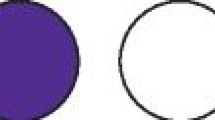Abstract
Design A 24-month randomised, two-armed, double-blinded, parallel controlled trial.
Methods Participants were recruited from educational centres for children with special healthcare needs (SHCN) aged 2-6 years. Out of the 37 special needs schools in Hong Kong, 19 were randomly selected, of which 16 met the inclusion criteria. Further exclusions occurred if the child was absent, no consent was signed or if they did not meet the inclusion criteria. All participants received standardised tooth brushing instructions. The test group were given validated social stories, while the control group utilised standard leaflets issued by the Department of Health. The resources were used both in education centre sessions in three phases and at home by parents. The oral health-related behaviours were assessed before and after interventions as well as dmft index. Caries was assessed via dmft at baseline and phase 3 (at 24 months). The severity of existing caries was assessed using the International Caries Detection and Assessment System. If existing carious lesions progressed from one stage to a more advanced stage, it was defined as progression. At baseline and each of the three follow-up visits, oral hygiene and gingival health were assessed using the modified gingival index and simplified debris index. Oral health behaviours assessed included tooth brushing performance (assessed by number of tooth brushing steps and duration/frequency), between-meal snacking (assessed by frequency) and dental visit experience (assessed as favourable if the child attended at least annual visits). It was then determined if these behaviours had improved. Data analysis utilised generalised estimating equations, negative binomial regression and binary logistic regression. Kappa statistics were used to test intra-examiner reliability on 10% of randomly selected participants.
Results There was no significant difference in caries experience between the two groups after 24 months. The results suggest children in the test group displayed improved tooth brushing performance, better oral hygiene and more frequent dentist visits. Children from higher socioeconomic backgrounds also showed better oral hygiene compared to those from lower socioeconomic backgrounds.
Conclusions Social stories may be useful resources to improve oral health-related behaviours in children with SHCN.
This is a preview of subscription content, access via your institution
Access options
Subscribe to this journal
Receive 4 print issues and online access
$259.00 per year
only $64.75 per issue
Buy this article
- Purchase on Springer Link
- Instant access to full article PDF
Prices may be subject to local taxes which are calculated during checkout
Similar content being viewed by others
References
Short J, Calder A. Anaesthesia for children with special needs, including autistic spectrum disorder. Contin Educ Anaesth Crit Care Pain 2013; 13: 107-112.
Zhou N, Wong H M, McGrath C. Development and validation of a social story for preschool children: 'Seeing a dentist'. J Dent Res 2020; 98: 3312.
Marion I W, Nelson T M, Sheller B, McKinney C M, Scott J M. Dental stories for children with autism. Spec Care Dentist 2016; 36: 181-186.
Author information
Authors and Affiliations
Rights and permissions
About this article
Cite this article
Osborne, R. Are social stories beneficial for oral health promotion in preschool children with special healthcare needs?. Evid Based Dent 22, 116–117 (2021). https://doi.org/10.1038/s41432-021-0191-1
Published:
Issue Date:
DOI: https://doi.org/10.1038/s41432-021-0191-1



